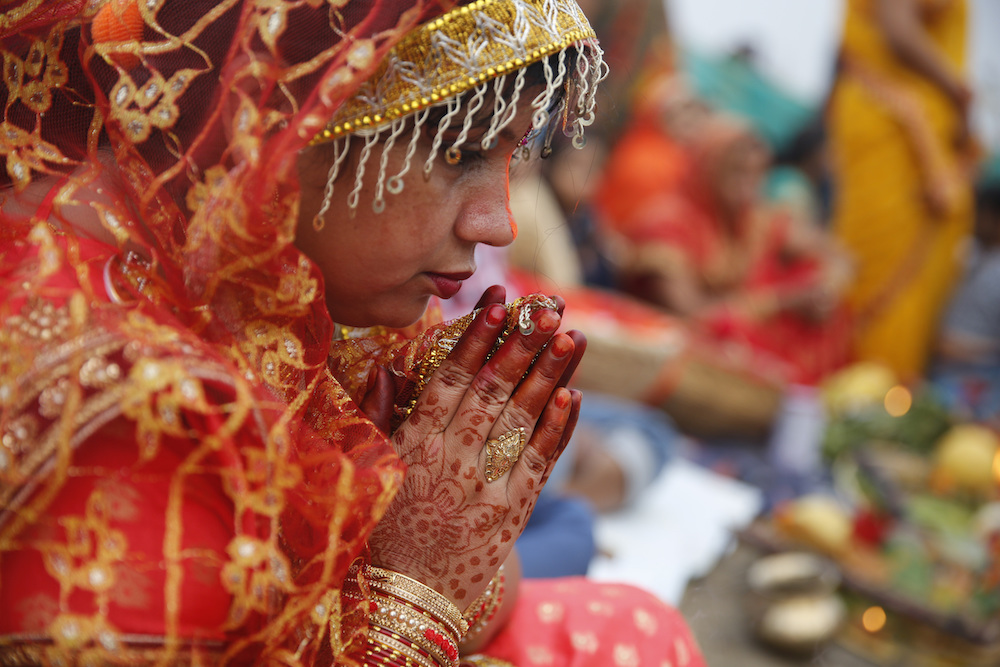(ترجم هذا المقال بالتعاون مع نيمان ريبورتس - جامعة هارفارد).
لامت منتجة في إذاعة "أن.بي.آر" (NPR) بواشنطن في تغريدة لها، الديانة الهندوسية بأكملها على مشاكل الهند، وقالت: "إذا تخلى الهنود عن الهندوسية، سيحلون بذلك معظم مشاكلهم كشرب البول وعبادة الروث".
لكنها حذفت التغريدة لاحقًا واعتذرت عنها واستقالت من منصبها. وقالت الإذاعة في رسالة لها إنها "تعتذر عن التغريدة غير المقبولة لمنتجة نيودلهي فرقان خان.. هذا التعليق لا يعكس أفكار صحفيي الإذاعة، ويعد خرقًا لمعاييرنا الأخلاقية. وقد اعتذرت المنتجة علنًا عن تغريدتها واستقالت من الإذاعة".
في عالم تهيمن عليه وسائل التواصل الاجتماعي، جاءتها سهام النقد سريعًا. بالنسبة للهندوس اليمينيين كانت تلك فرصة لإظهار "تحيز" وسائل الإعلام ضدهم. لكن هذا لم يكن رد الفعل الوحيد. تساءلت صحيفة "دي.أن.أي" (DNA) -وهي صحيفة هندية يومية تصدر بالإنجليزية- إن كان "بإمكاننا الوثوق في تغطية إذاعة أن.بي.آر للأخبار بحيادية، نظرًا لرؤى موظفيها الخبيثة هذه". وطالب آخرون بثقافة صحفية نزيهة وأمينة.
وتساءلت عريضة مقدمة إلى إذاعة "أن.بي.آر" عن تمثيل القومية الهندوسية في تغطيتها باعتبارها الموضوع المهيمن، إلى جانب حديثها الدائم عن "غرابة العبادة الهندوسية وفضحها، وعنف الهندوس تجاه الآخرين". وأضافت العريضة أن إذاعة "أن.بي.آر لا تحاول حتى عرض وجهات نظر متنوعة ولا سرديات مخالفة بطريقة مؤثرة".
المشكلة هنا ليست في التغريدة وحدها، بل في الكيفية التي يظهر بها المجتمع الهندي والهندوسية في وسائل الإعلام الغربية، دون فهم كاف للسياق أو التمثيل السياسي للديانة الهندوسية.
في ظل حكم رئيس الوزراء ناريندرا مودي، شهدت الهند تصاعدًا في أعمال العنف ضد الأقليات الدينية. وعُذب كثير من المسلمين وقتلوا خارج نطاق القانون بزعم أكلهم لحوم البقر.
وتواجه وسائل الإعلام الهندية صعوبات في تغطية مثل هذه الأحداث التي تفضح أيدولوجيا الحكومة، فقد قتل الصحفي غوري لانكيش الذي كان ناقدًا للمجموعات اليمينية عام 2017. وكما أشار المعلقون، فإن كل من يعارض أفكار القومية الهندوسية عن الدولة الطائفية في الهند اليوم، معرض للخطر.
لكن التفرقة بين صعود القومية الهندوسية والديانة الهندوسية واجبة، فقد ولدت الأولى في فترة الاستعمار البريطاني الذي صعدت في سياقه هوية هندوسية طائفية جديدة. نرى ذلك في تأسيس المنظمة الهندوسية القومية راشتريا سوايامسيفاك سانغ التي عرفت اختصارا باسم "آر.أس.أس" (RSS) عام 1925.
لكن الصحافة الدولية كثيرًا ما تحجم عن ذكر هذا السياق.
يقول الباحث بجامعة بنسلفانيا ومحرر كتاب "الهندوسية الرقمية.. دارما والخطاب في عصر الإعلام الجديد" مورالي بالاجي "عندما تركز وسائل الإعلام على الهندوسية في شبه القارة الهندية حصرًا بعد العام 1947، عادة ما يتم الخلط بين الهندوسية وصعود الهندوسية السياسية دون ذكر أي سياق للتفرقة بينهما، أو حتى دون حس بمدى تنوع الهندوسية نفسها".
ودون هذه التفرقة الدقيقة، تركز القصص الإخبارية على الخلافات الدينية بدلا من الدوافع السياسية. فمثلا حين أغلقت حكومة مودي محلات الجزارين، ركزت وسائل الإعلام الأجنبية على مأساة الجزارين المسلمين، وغاب عن هذه القصة أن الهند ليست واحدة من أكبر مصدري اللحوم البقرية وحسب، بل إن أكبر شركات اللحوم مملوكة لهندوس، وهي نقطة مهمة في فضح الدوافع السياسية لتلك الخطوة.
والأدهى من ذلك أن تصوير المسلمين كأقلية في الهند يغفل بعض السياقات التاريخية والديمغرافية الهامة. فلدى الهند ثاني أكبر عدد من السكان المسلمين في العالم بعد إندونيسيا، وهناك تاريخ طويل من التفاعل بين هذه الأديان. هذا التاريخ لم يخلُ من الصراع، لكنه في مجمله تفاعل طبيعي ويومي.
العلمانية منصوص عليها في الدستور الهندي، وعلى مستوى الممارسة اليومية، لا تعني هذه العلمانية غياب الدين كما هو حال المجتمعات الغربية، بل قبول كل المعتقدات. وما عرفته خلال نشأتي في الهند وعملي فيها صحفيًّا، أن الكثير من الهندوس يزورون المزارات الصوفية، كما يشارك المسلمون في الأعياد الدينية الهندوسية. في بعض أجزاء الهند، مثل مدينة فاراناسي المقدسة في الشمال، يظهر هذا التداخل والترابط الديني جليا في المعاملات اليومية والتجارة والشعائر الدينية. فمن دون النساجين المسلمين مثلا، لن يكون هناك ما يكفي من سواري الحرير لتزيين الآلهة في المعابد الهندوسية. وخلال شهر رمضان، يكون الإفطار مناسبة اجتماعية يحتفي بها الهندوس ويستضيفونها.
وفي هذا الصدد، أشار الباحثون إلى الكيفية التي يتشكل بها الفهم الحديث للأديان من المنظار الأوروبي. وفي حالة الهند، يضاف إليها المنظار الكولونيالي.
كتبت أستاذة الأدب المقارن والأدب العالمي بجامعة إلينوي الأميركية ريني ميهتا تقول إنها في تدريسها لمادتها "مقدمة في الآداب والثقافات في جنوب آسيا"، وجدت أن فهم الطلاب اليوم للهند القديمة ينبع من "الطريقة التي رأى بها الأوروبيون الأمور في السنوات الـ300 الماضية".
في القرن العشرين، احتقرت الطبقة البريطانية الحاكمة الهندوس، وتظهر السجلات اليومية لجون كولفيل سكرتير ونستون تشرشل من فبراير/شباط 1945، مدى كراهيته للهندوس. تقول مذكرات كولفيل إن "رئيس الوزراء قال إن الهندوس عرق كريه، وتمنى لو يرسل بيرت هاريس بعض قاذفات القنابل الزائدة لديه لتدميرهم".
هذا الماضي متجذر للغاية "ويؤثر على طريقة رؤيتنا للأمور"، على حد قول ميهتا.
ينعكس هذا الماضي كذلك في مدى ندرة تصوير الهندوسية باعتبارها دينًا متنوعًا، فليس بها طرق مختلفة للعبادة وحسب، وإنما هناك فلسفات هندوسية لا تؤمن بوجود الإله.
ووفقا لباحثين، ظهرت فكرة الديانة الهندوسية أحادية اللون إبان الحكم البريطاني الكولونيالي. فمصطلح "هندو -وهي كلمة فارسية- استخدم للإشارة إلى الشعوب التي تعيش قرب نهر إندوس المعروف بنهر السند".
وكما تقول ديان مور المحاضرة في الدراسات الدينية والزميلة بمركز دراسات الأديان العالمية في كلية اللاهوت بهارفارد "إن وسائل الإعلام تعيد إنتاج التصورات الإشكالية المتجذرة في ثقافتنا عن الأديان المختلفة، وهي في غالبها تصورات عفوية ساذجة".
لكن في الوقت نفسه، من المهم أن يفهم الصحفيون الإشكاليات الكامنة في هذه التصورات. فالصحافة ساهمت إلى حد كبير في تشكيل تصور عن الإسلام بأنه دين عنيف. وسيسهم اتباع قاعدة أخلاقية أساسية في الصحافة وهي عرض وجهات نظر متنوعة، في تحقيق تغطية أكثر توازنًا، وأكثر بعدًا عن التصورات الضيقة.
في العام 2018، كانت الهند على قائمة أخطر الدول بالنسبة للصحفيين. وتساهم تغريدات مثل تغريدة منتجة إذاعة "أن.بي.آر" في تعزيز هوس الأخبار الزائفة والهندوفوبيا. وكلما طال أمد هذا الأمر، زاد التوجس من الخارج وضاعف من انغلاق الهوية الهندوسية على ذاتها.
حريّ بنا الإشارة أخيرًا إلى أن هذه التصورات المغلوطة تسهم في تعزيز شوكة الخطاب القومي وادعائه بأن الهندوسية تواجه الخطر. وهكذا، على الرغم من أن الإعلام والقوميين المتطرفين يقفون على طرفي نقيض، فهما في هذه الحالة يحققان في النهاية الهدف نفسه.








































